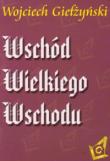 |
Chcesz wiedzieć więcej?
Zamów dobrą książkę.
Propozycje Racjonalisty: | | |
 |
|
|
 |
»
W kręgu myśli Rose Wilder Lane, Isabel Paterson i Ayn Rand [4] Author of this text: Patrycja Walter
Sama Rand
etykietowała siebie jako przeciwniczkę feminizmu, zapewne dlatego, iż
feminizm wiązała z ideami kolektywistycznymi, co stanowiło dla niej zło samo w sobie. Jednak nie darzyła też sympatią tradycyjnego wizerunku kobiety, która
poświęca się, zajmując się gospodarstwem domowym czy wychowaniem dzieci.
Taka postawa była w sprzeczności z jej etyką egoizmu. W jednym z wywiadów
podkreśliła, że kobieta winna, jeśli tego pragnie, rozwijać się zawodowo.
Co jest właściwe mężczyźnie, mówiła, jest też właściwe kobiecie i nie
istnieją prace przypisane tylko kobietom lub tylko mężczyznom. Potwierdzają
te słowa jej bohaterki Kira Argounova
z We the Living czy Dagny Taggart z Atlas Shrugged, które pracują w zawodach uznawanych stereotypowo za niekobiece.
Dlatego też tekst „About a Woman President" autorstwa Rand był zaskakujący. Rand deklarowała w nim,
że nie chciałaby zostać prezydentem i nie głosowałaby na kobietę
prezydenta. Co więcej, stwierdzała, iż żadna kobieta o zdrowych zmysłach
nie może chcieć być dowódcą [ 110 ],
gdyż jako matka i siostra nie będzie potrafiła być liderką. Pisarka
uzasadniała, że idea kobiety — prezydenta wydaje się metafizyczną
niepoprawnością. Trudno pojąć, co autorka tym stwierdzeniem chciała
czytelnikom przekazać.
Isabel Paterson i Rose
Wilder Lane uważały, że prymarność
indywidualizmu znosi z definicji problem płci. Zaś pełna emancypacja
jednostki gwarantowana jest poprzez jej prawa naturalne. Pytanie o płeć
ignorowała Wilder Lane, uznając je za bezzasadne. W jej mniemaniu należało
walczyć o zagwarantowanie maksymalnej wolności każdej jednostce, niezależnie
od płci [ 111 ]. Paterson
zauważała, że warunki biologiczne sprawiają, że pod pewnymi względami na
przykład, siły fizycznej kobieta nigdy nie będzie równa mężczyźnie,
podobnie jak mężczyzna nie urodzi dziecka [ 112 ].
Stwierdzała też, iż chciałaby się zająć tak zwaną typowo męską
pracą, lecz obawia się, że gdyby się jej w takiej sferze powiodło, pracę tę
natychmiast uznano by za zdecydowanie kobiece zajęcie [ 113 ].
Bibliografia
1.
Y. Arieli: „Individualism
and National" w: R. O. Curry i L. B. Godheart (red.): American Chameleon:
Individualism in Transnational Context, Kent State University Press, Kent,
OH. Publication 1991.
2.
D. T. Beito, L. Royster
Beito: „Isabel Paterson, Rose Wilder Lane, and Zora Neale Hurston on War,
Race, the State, and Liberty", The Independent Review, v. XII, n. 4, Spring
2008.
3.
N. Branden: „Ayn Rand:
The Reluctant Feminist" w: M. R. Gladstein i Ch. M. Sciabarra (red) Feminist Interpretations of Ayn
Rand, Pennsylvania State University
Press, Pennsylvania 1999.
4.
S. Cox: „Introduction
to the Transaction Edition" w: I. Paterson (red.): The God of the Machine.
with a New Introduction by Stephen Cox, Transaction Publishers Rutgers, New
Jersey 1993.
5.
S. Cox: The Women and
the Dynamo: Isabel Paterson and the Idea of America, Transaction Publishers
Rutgers, New Jersey, 2004.
6.
M. R. Gladstein, Ch. M.
Sciabarra: „Introduction" w: M. R. Gladstein, Ch. M. Sciabarra (red.): Feminist Interpretations of Ayn
Rand, Pennsylvania State University Press,
Pennsylvania 1999.
7.
A. Greenspan: The Age
of Turbulence. Adventures in a New World, The Penguin Press, New York 2007.
8.
J. E. Miller: Laura
Ingalls Wilder and Rose Wilder Lane: 'Authorship, Place, Time and Culture
University of Missouri Press, Columbia 2008.
9.
R. Nozick: Socratic Puzzles, Harvard University Press, Cambridge, Massachusetts, London England
1997.
10.
C. A. Paglia: Reflections
of Ayn Rand w: M. R. Gladstein i Ch. M. Sciabarra (red.): Feminist
Interpretations of Ayn Rand, Pennsylvania State University Press,
Pennsylvania 1999.
11.
I. Paterson: The God
Of the Machine. With a New Introduction by Stephen Cox, Transaction
Publishers, New Brunswick and London 1993.
12.
A. Rand „Return of the
Primitive: the Anti-Industrial Revolution: The Anti-Industrial Revolution", .Meridian,
New York 1999.
13.
A. Rand: „The
Fountainhead. With a Special Introduction by Author", Penguin Books, New York,
London 2007.
14.
A. Rand: The Virtue
of selfishness. A New Concept of Egoism with additional articles by Nathaniel
Branden, A signet Book New American Library, New York 1964.
15.
A. Rand: „What Is
Capitalism?" w: Capitalism: The Unknown Ideal, with additional articles by
Nathaniel Branden, Alan Greenspan and Robert Hessen, A Signet Book New
American Library, The Objectivist Newsletter, Inc., New York, 1967.
16.
Ch. M. Sciabarra: Ayn
Rand: the Russian Radical, Pennsylvania State University Press, Pennsylvania
1995.
17.
Ch. M. Sciabarra: Total Freeddom: Toward a Dialectical Libertarianism, Penn State Press,
Pensilvania 2000.
18.
B. Sicherman, E. T.
James,C. H. Green (red.): Notable American Women. The Modern Period: a Biographical Dictionery, Harvard University Press, 1980.
19.
R.Wilder Lane: Discovery of Freedom. Man's Struggle Against Authority, The John Day Company New York 1943.
20.
R. Wilder Lane; Give
me liberty, The Caxton Printers, ltd. Caldwell, Idaho 1954.
21.
R. Wilder Lane, H. Dore
Boylston, W. V. Holtz (red.): Travels with Zenobia. Paris to Albania by Model
T Ford: A Journal, University of Missouri Press, Columbia 1983.
1 2 3 4
Footnotes: [ 110 ] Por.
S. Love Brown: op. cit., s. 275. [ 111 ] Por.
J. E. Miller: op. cit., s. 61. [ 112 ] Por. S. Cox: „The
Woman…", op. cit., s. 196 — 197.
« (Published: 20-06-2011 )
All rights reserved. Copyrights belongs to author and/or Racjonalista.pl portal. No part of the content may be copied, reproducted nor use in any form without copyright holder's consent. Any breach of these rights is subject to Polish and international law.page 1924 |
 |




 Absolwentka filozofii i nauk politycznych UAM. Współpracuje z Aletta
Institute for Women's History w Amsterdamie.
Absolwentka filozofii i nauk politycznych UAM. Współpracuje z Aletta
Institute for Women's History w Amsterdamie.